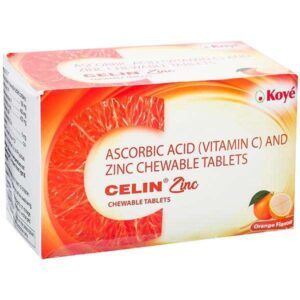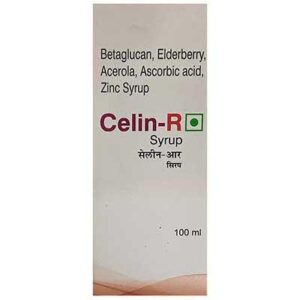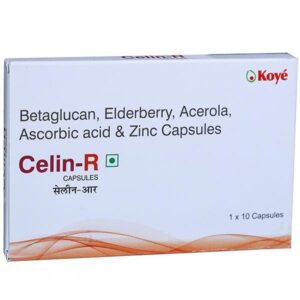ZINC + ASCORBIC ACID
Zinc: Zinc is a mineral supplement commonly used to treat and prevent zinc deficiency. It is essential for numerous physiological processes in the body, including immune function, wound healing, and DNA synthesis. Zinc supplements are available in various forms, including tablets, capsules, lozenges, and syrups.
The mechanism of action of zinc is not fully understood. However, it is believed to play a crucial role in the activation of enzymes, regulation of gene expression, and maintenance of protein structure. Zinc also acts as an antioxidant, protecting cells from damage caused by free radicals.
The recommended daily allowance (RDA) of zinc varies depending on age and sex. For adults, the RDA ranges from 8-11 mg for women and 11-14 mg for men. However, certain conditions like pregnancy, breastfeeding, and certain medical conditions may require higher doses. It is important to follow the recommended dosage guidelines provided by healthcare professionals or as indicated on the product packaging.
Common side effects of zinc supplements include nausea, vomiting, diarrhea, stomach cramps, and a metallic taste in the mouth. Taking high doses of zinc over a prolonged period can interfere with copper absorption and result in copper deficiency. It is advisable to consult with a healthcare professional before starting zinc supplements, especially for individuals with specific medical conditions or taking other medications. Zinc may interact with certain antibiotics, diuretics, and penicillamine.
In conclusion, zinc is a mineral supplement used to treat and prevent zinc deficiency. It plays a vital role in many physiological processes and is available in various forms. However, it is important to follow recommended doses and be aware of potential side effects and drug interactions when using zinc supplements.
Ascorbic Acid: Ascorbic Acid, also known as Vitamin C, is a water-soluble vitamin that is essential for various biological functions in the body. It is a powerful antioxidant that helps protect cells from damage caused by free radicals. Ascorbic Acid is primarily obtained through dietary sources such as fruits and vegetables.
Uses:
Ascorbic Acid is used to prevent or treat Vitamin C deficiency, which can lead to conditions like scurvy. It is also used as a supplement to support the immune system, enhance iron absorption, and promote collagen synthesis for healthy skin, blood vessels, bones, and cartilage.
Mechanism of Action:
Ascorbic Acid functions as a cofactor for several enzymes involved in numerous metabolic reactions. It acts as an electron donor, helping to neutralize harmful free radicals and reactive oxygen species, protecting cells and tissues from oxidative damage. Additionally, it plays a vital role in the synthesis of collagen, neurotransmitters, and carnitine.
Dose:
The recommended daily intake of Ascorbic Acid varies depending on age, sex, and life stage. For adults, the recommended daily allowance is typically around 75-90 mg for women and 90-120 mg for men. Higher doses may be necessary in certain situations, such as during pregnancy or with certain medical conditions. It is available in various forms, including tablets, capsules, and powders.
Side Effects:
As a water-soluble vitamin, excess Ascorbic Acid is usually excreted in the urine. However, high doses of Ascorbic Acid (>2000 mg/day) can cause gastrointestinal distress, including diarrhea, stomach cramps, and nausea. Other potential side effects include kidney stones in susceptible individuals, especially with long-term high-dose use. People with a known sensitivity or allergy to Ascorbic Acid should avoid taking this supplement.
It is important to note that while Ascorbic Acid can provide numerous health benefits, it should not be considered a substitute for a well-balanced diet. It is always recommended to consult a healthcare professional before starting any supplement regimen, especially if you have pre-existing medical conditions or are taking other medications.



